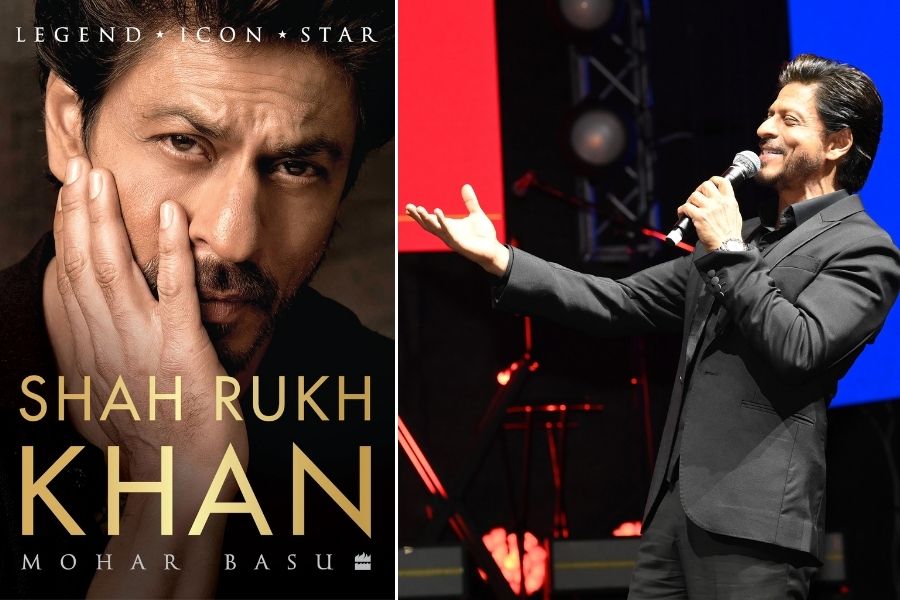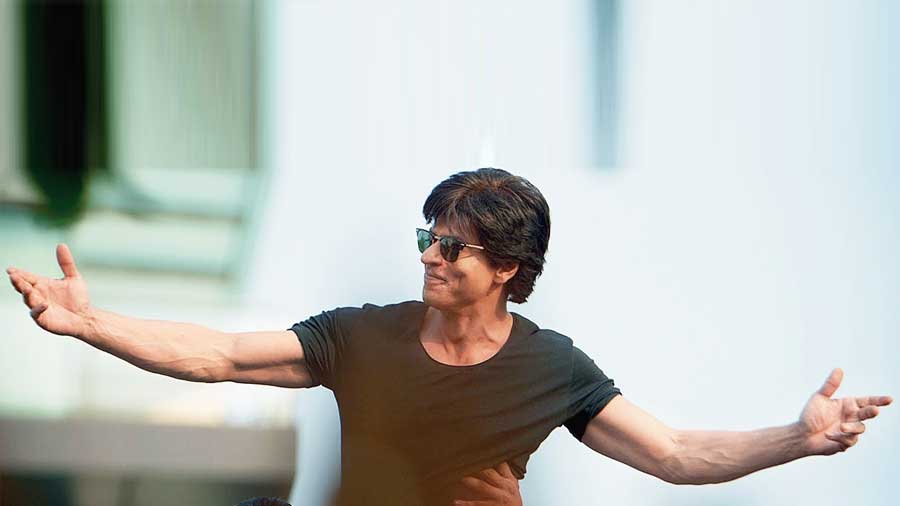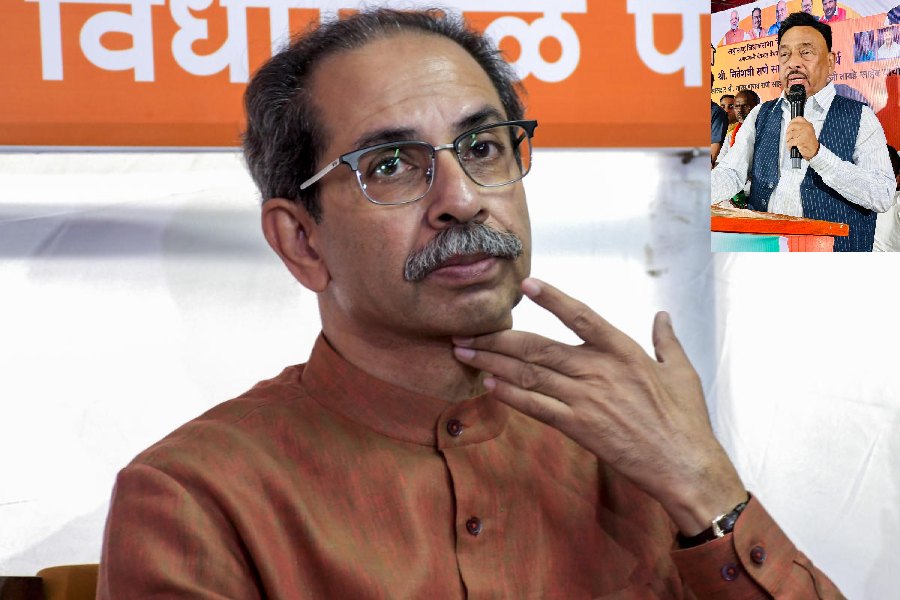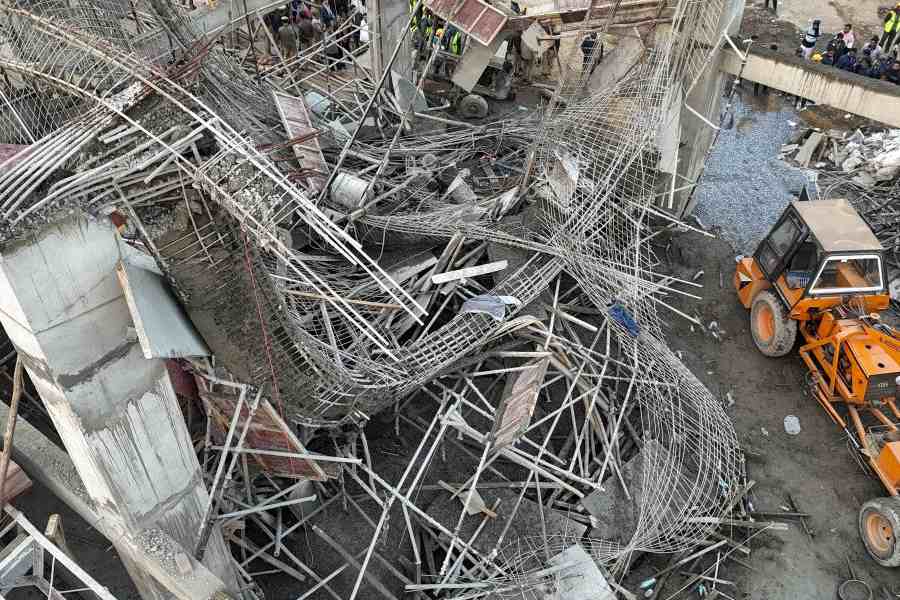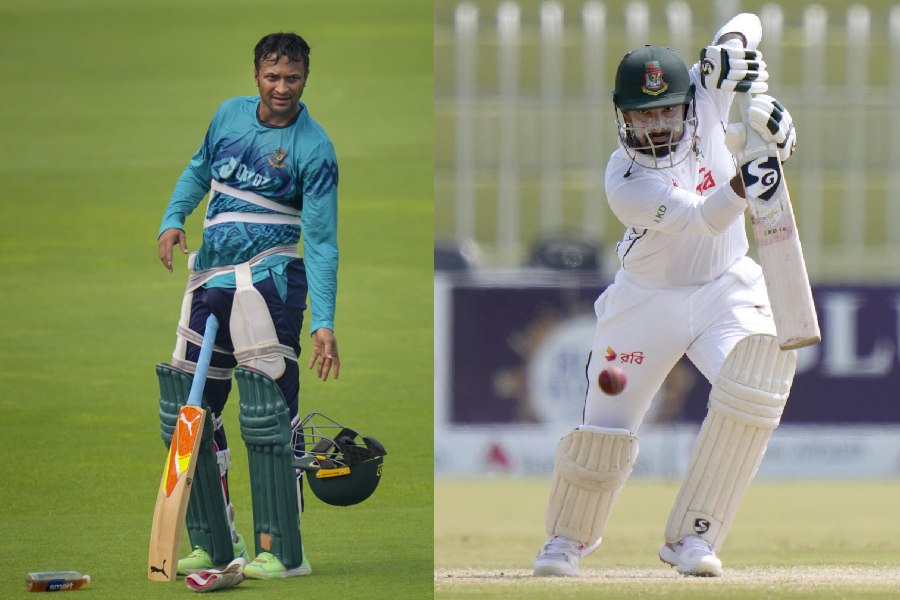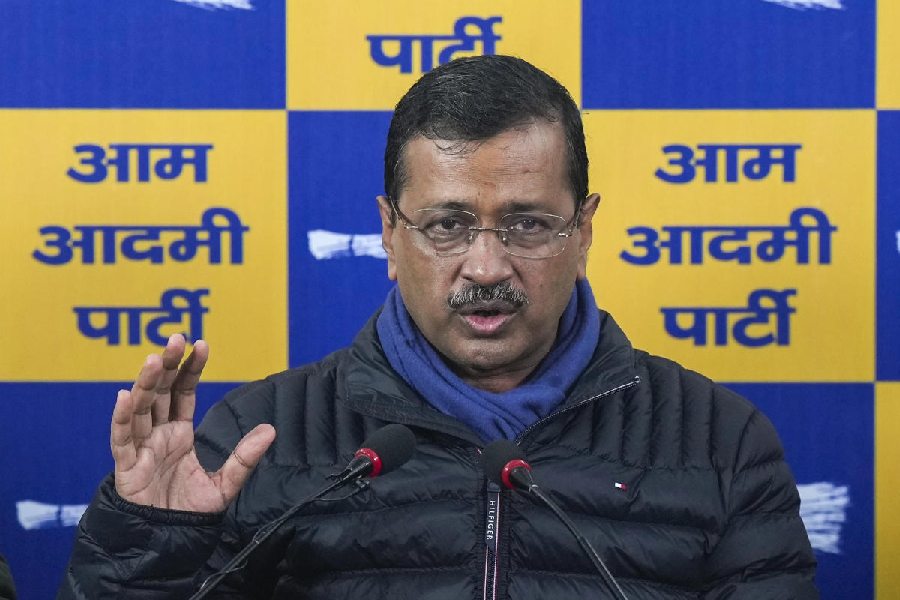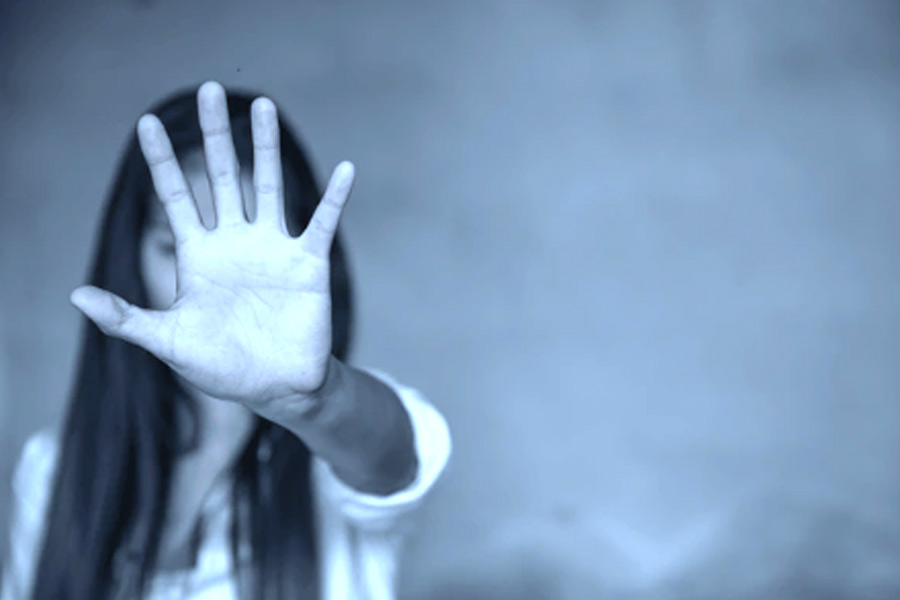“I say it with all humility, I am the last of the stars.” These words by Shah Rukh Khan grace the back cover of Mohar Basu’s book on the megastar. Shah Rukh Khan: Legend, Icon, Star (HarperCollins) traces the inspiring journey of a man who has redefined stardom and enthralled audiences across the globe for more than three decades. But what shapes the man behind the phenomenon?
An entertainment journalist for Mid-Day, Basu was named among the ‘40 under 40’ achievers recognised by the Indian Achiever’s Club in 2024. Her work explores Bollywood’s evolving dynamics and has contributed to industry reforms. My Kolkata caught up with the author over video call to decode her book on Shah Rukh Khan. Edited excerpts from the chat follow.
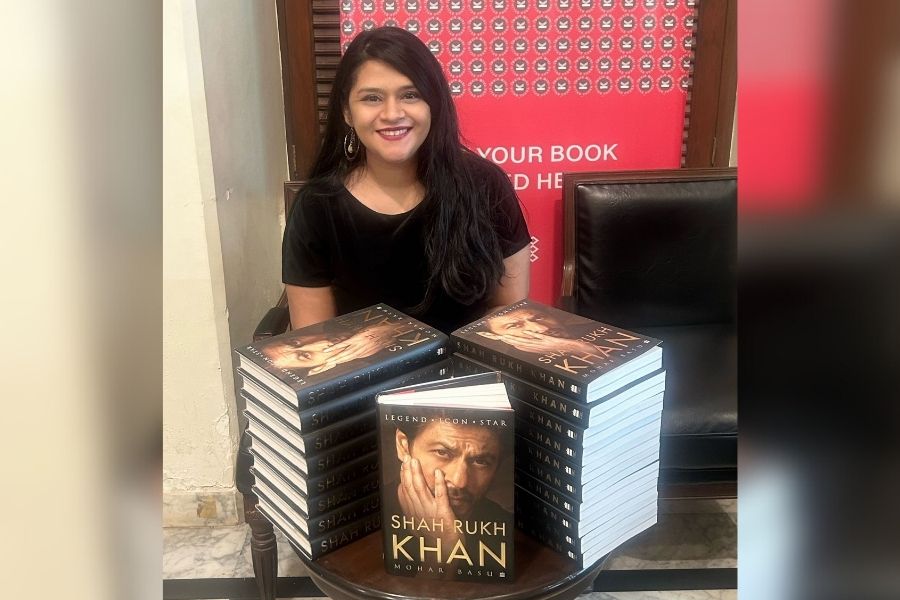
A lot of the material for Basu’s book came from archival materials Mohar Basu
My Kolkata: The book captures a young Shah Rukh’s journey, his bond with his clique — the C-Gang — the time he spent with his parents and their profound impact on him. How did you research these lesser-known aspects of his life?
Mohar Basu: These moments have been covered in interviews, but they’re no longer available in the public domain. Most of these are archival materials. I know about Shah Rukh’s mother and father through my parents, who are his fans. A lot of the old interviews came from my mother’s repository, many featuring his C-gang from Delhi. They give you a peek into who Shah Rukh was before he became the Shah Rukh Khan.
Part of it comes from Tehelka’s THiNK 2012 interview, where SRK spoke about a passage from his biography — which he might, inshallah, release one day — where he talks about losing his father in the no man’s land between Pakistan and India. Upon their return to Delhi, his father was diagnosed with throat and liver cancer. Everyone has that heartsore they’re trying to heal throughout their life. Shah Rukh’s heartsore is the death of his father. He’s been working towards not repeating the same mistakes, not being the ‘most successful failure’ his father was — but always with the memory of what that love meant to him.
Shah Rukh never wrote poems after his father’s death. He called himself a pragmatic poet, wanting to write poems with a stomach full of food. Your thoughts?
I agree with him. I’m a believer in cinema and art, but I also believe that unless you have the money to pay your bills, your art will never be able to flourish the way it should. We’ve glorified the idea that creativity can thrive even in poverty, but no! You should be happy when you’re doing something, and money is an important factor.
Even if, tomorrow, SRK stops acting and giving us blockbusters, we’ll still love him
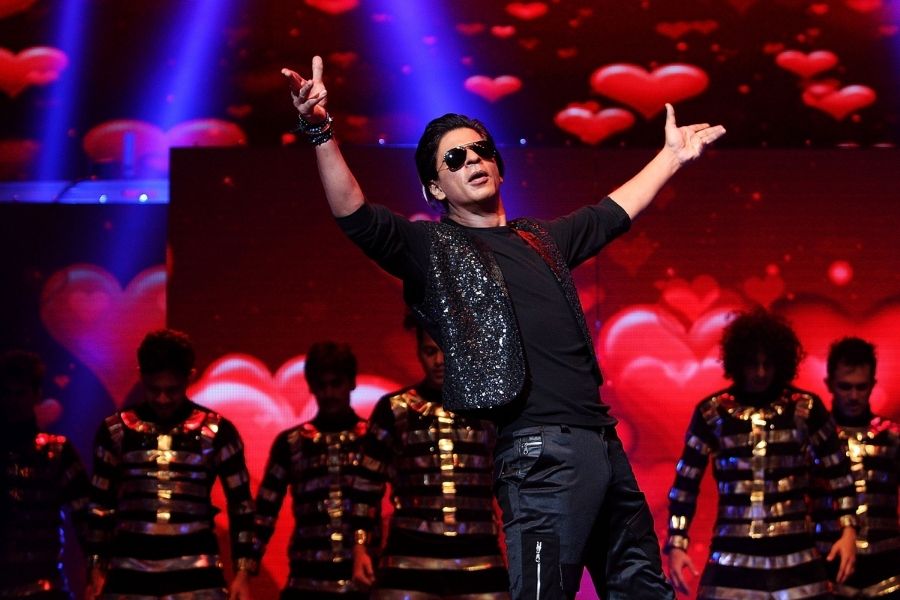
“If we work hard, we can get there” is how SRK’s story resonates with so many, according to Basu Getty Images
During Pathaan’s success press conference, SRK spoke about heartache — how it’s okay to not be okay — which makes him relatable rather than a distant star. Do you think this adds to his enduring appeal?
Absolutely! The most enduring part of Shah Rukh’s appeal is what Aditya Chopra says: he’s every mother’s son, every woman’s guy and every girl’s fantasy. It takes a brilliant actor to be a superstar — and such a loved superstar — for so long. It can’t happen unless you have a sense of the market you’re catering to. He’s relatable; his story is one that you and I can look at and think, “If we work hard, we can get there.” SRK’s appeal has a lot to do with his movie persona. But more than SRK, the star, I think people love Shah Rukh Khan, the man. Even if, tomorrow, he stops acting and giving us blockbusters, we’ll still love him.
When Dilip Kumar passed away, Shah Rukh was the first to arrive, and Saira Banu considers him their “mooh-bola beta”. What stood out to you about their bond?
Every time I've interviewed Sairaji, she always speaks of their connection as one of friendship and love. Shah Rukh relates to Dilip Kumar because the latter was someone his parents knew, and his mother was a big fan of the thespian. When Shah Rukh did Devdas, we saw the parallels between them. Though they’re not similar performers, there’s a charm common to both.
When Dilip Kumar passed, Shah Rukh showed up for someone he considers family. I remember the footage of him entering Dilip saab’s house. There was a cop, and Shah Rukh greeted him with a ‘salaam’ before walking ahead. These small gestures set him apart. It’s as if he’s saying, ‘You matter to me.’ Anyone who has met him knows that when he spends five minutes with you, he owns those five minutes. At that point, there’s no one else in the world for him.
Gauri became the only family Shah Rukh ever had
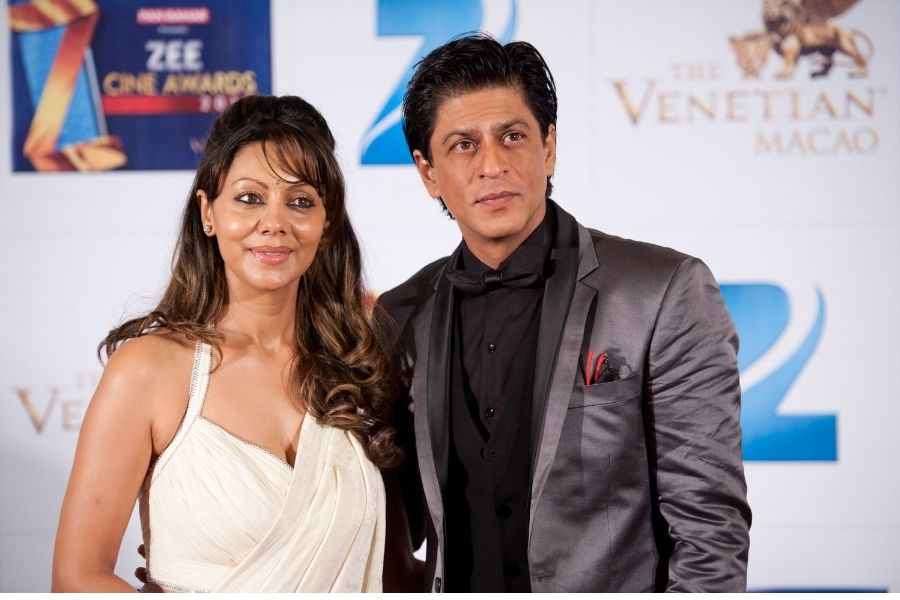
The beauty of the Gauri-SRK relationship is that they’ve seen each other through every phase Getty Images
Shah Rukh and Gauri’s interfaith marriage was unconventional and challenging. How does it resonate with younger generations today, considering evolving perceptions of love?
Imagine meeting someone when you’re 14 and having them be familiar with every version of you. That was Shah Rukh and Gauri’s love story. Their whole life changed when Shah Rukh lost his parents, and Gauri became the only family he ever had.
It’s hard for a woman to be married to a global superstar. But the beauty of their relationship is that they’ve seen each other through every phase — as best friends, a dating couple, husband and wife, and now parents. They’re parenting three kids who belong to different generations. It’s a love story that I hope most of us get to live as well.
If ‘Swades’ released today, it likely wouldn’t resonate
SRK’s portrayal of anti-heroes in Baazigar and Darr brought psychological depth to Bollywood villains. How does this reflect his approach to acting and responsibility towards his audience?
SRK has always been a risk-taker, never a safe player. Darr’s tone was such that no one thought Juhi Chawla’s character should end up with Shah Rukh’s. You’d feel scared every time Shah Rukh appeared on screen. When his character became popular, it was because people recognised that a great actor had arrived in the industry. No one became a fan of his character’s moral values. Darr underscored the traumatic side of being stalked, and that’s the impact it had. The fact that the character dies in the end — his graph, psyche and fate — shows there’s no redemption for his deeds. This happens in Baazigar, too. Shah Rukh himself has said that when he plays the bad guy, he’s going to die a dog’s death. He’s very conscious of what he doesn’t want to propagate to his fans because a certain responsibility comes with art. He’s never been reckless with his choices.
At the time of its release, Swades was considered “too sophisticated for the average audience”. Would the movie have succeeded today?
No. Any film’s success depends on the world in which it is released. The types of films that are doing well today aren’t films that make you think; they’re films that provide pure entertainment, shocking you for three hours. The industry is focused on recovering the losses of the last five years. If Swades released today, it likely wouldn’t resonate. It’s a lengthy, introspective film, and no one wants to look inwards right now. But this wave of conscientious cinema will return. I don’t think people can live without their moral compass for too long.
What can we learn from SRK’s ability to turn career lows into opportunities for self-growth?
Set a timeline for yourself. I can beat myself up every day, but six months later, I’ll get up and see what I want to do next. A break offers perspective; when you’re away from the noise, you can hear your own voice better. Shah Rukh went to Aditya Chopra wanting to do an action film. He said, “I might not be as good as Tiger (Shroff) or Duggu (Hrithik Roshan), but I will try my best.” When Shah Rukh Khan bounces back, it’s the most glorious bounce back ever!
Failures are natural, but what you make of them defines you as a person. No matter how many films don’t work, you have to go back to the drawing board and think. Shah Rukh did exactly that — he listened to himself and made a bunch of films that we enjoy.
Shah Rukh looked at me and said, ‘Darling, do you want a picture?’
You’ve mentioned the impact of SRK’s aura, his larger-than-life persona. How was your experience of meeting him?
I remember a meeting at Mehboob Studio, where Shah Rukh was giving interviews for Dear Zindagi. When you’re a journalist, there’s a switch in your head that you learn to flip. You’re looking for a good interview, so the fangirl must switch off. When the interview wrapped up and I was leaving, my colleague asked Shah Rukh, “Can I please get a picture?” He said, “Sure.” They clicked a picture, and then Shah Rukh looked at me and said, “Darling, do you want a picture?” I was mesmerised! When you meet him, what stays with you is the warmth. During Jab Harry Met Sejal's trailer launch, we spoke over the phone. He told me, “You can call me Shah.” I said, “No, I can’t. I can’t call you Shah or even Shah Rukh. I have to call you Mr. Khan.” I think the five-year-old in me and the film journalist walk hand in hand when it comes to him.
Pradeep dada was my first friend in the industry: SRK
The book includes some lovely photos by Pradeep Bandekar. Could you share a behind-the-scenes anecdote about any of these?
I’ve known Pradeep dada since I was young — he was my friend Prathamesh’s father. While we were sorting pictures for the book, I called him on a Saturday to ask for a caption for a photo of a fundraiser Shah Rukh had organised in 1995 for junior artistes. The next morning, I woke up to the news that he had passed. At Pradeep dada’s funeral, Shah Rukh said Pradeep dada was his first friend in the industry — the sort of person who makes you feel special. Wherever he is now, he’s still making everyone feel special.
More than discussing Shah Rukh’s work, Pradeep dada always told us stories about how Shah Rukh is as a person, how he helps people. Prathamesh told me that his first camera was a gift from Shah Rukh, who got it for him from Switzerland because he knew Prathamesh wanted to be a photographer. This is what people hold on to when they write obituaries. No one writes about craft. How a human being is — that’s what lives on.
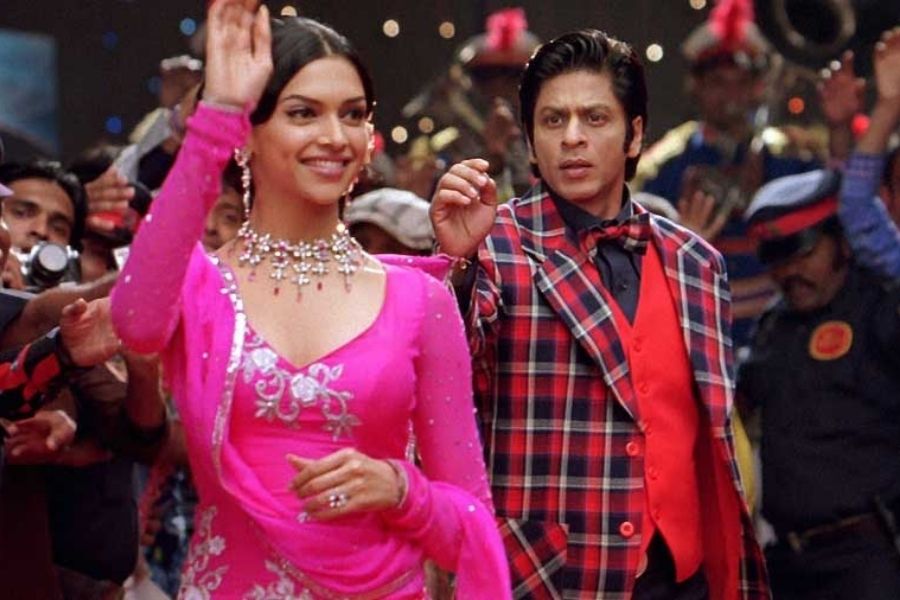
Basu’s favourite dialogue of SRK comes from ‘Om Shanti Om’
If you were stranded on a deserted island, which characters played by SRK would you want for company?
I'd pick Raj from Dilwale Dulhania Le Jayenge because he'll be funny, Kabir Khan from Chak de! India and Mohan Bhargava from Swades to have intellectual conversations with.
What’s your favourite SRK dialogue?
The story of happy endings. “Hamari filmo ki tarah, hamari zindagi mein bhi end tak sab kuch theek hi ho jaata hai. Happies ending. Aur agar theek na ho, toh woh the end nahi. Picture abhi baaki hai, mere dost."

